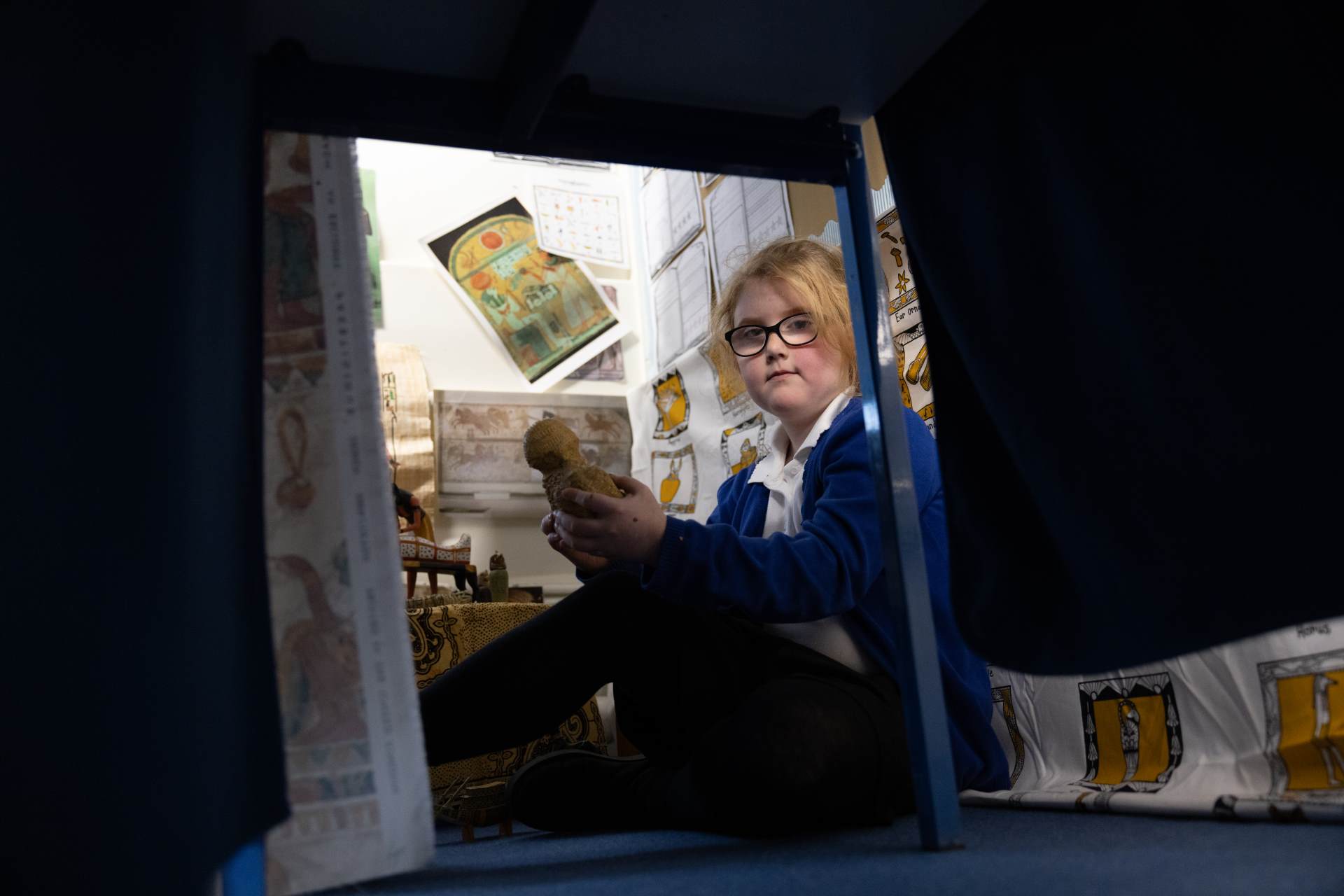History
Please click HERE to see an overview of what History is taught in each of the year groups.
Subject Intent
At Whitehill Primary School, our intent is that our teaching of history will help pupils gain a coherent knowledge and understanding of Britain’s past and that of the wider world. We aim for it to inspire pupils’ curiosity about the past and create a desire to find out more about a historical moment. We aim to enable children to ask critical questions, develop perspective and judgement. Through the teaching of history, we endeavour to teach children to understand the complexity of people’s lives, the process of change and the diversity between different societal groups. This is alongside understanding their own identity, place in the world and the challenges of their time.
past and that of the wider world. We aim for it to inspire pupils’ curiosity about the past and create a desire to find out more about a historical moment. We aim to enable children to ask critical questions, develop perspective and judgement. Through the teaching of history, we endeavour to teach children to understand the complexity of people’s lives, the process of change and the diversity between different societal groups. This is alongside understanding their own identity, place in the world and the challenges of their time.
We want our children to be inquisitive and to question the information they are presented with to further their historical understanding. History explores culture, beliefs and values that help pupils to develop an understanding of themselves and others. We want children to understand how they, their family and friends are linked to the historical fabric of the local area, country and the world.
A high-quality history education will help pupils gain a secure knowledge and understanding of Britain’s past and that of the wider world. It should inspire pupils’ desire to know more about the past. Pupils should learn about the different forms that evidence of the past can take and recognise the validity of primary, secondary and tertiary forms of evidence. Teaching should equip pupils to ask perceptive questions, think critically, develop perspective and judgement. History helps pupils to understand the complexity of people’s lives, the process of change, the diversity of societies and relationships between different groups, as well as their own identity and the challenges of their time.
Aims & Expectations
 At Whitehill Primary School we aim to:
At Whitehill Primary School we aim to:
- foster in children an interest in the past and to develop an understanding that enables them to enjoy all that history has to offer.
- enable children to know about significant events and people in British history, to recognise the validity of different types of evidence and to appreciate how things have changed over time.
- develop a sense of chronology.
- understand how Britain is part of a wider European culture and to study some aspects of European history and the wider world.
- promote history by current and up to date displays.
- give wider opportunities for learning outside by both visitors and class trips linked to topics.
Inclusion & Equal Opportunities
At Whitehill Primary we teach history to all children, whatever their ability. History forms part of the school curriculum policy to provide a broad and balanced education to all children.
Through our history teaching we provide learning opportunities that enable all pupils to make progress. We do this by setting suitable learning challenges and responding to each child’s different needs. When progress falls significantly outside the expected range, the child may have special educational needs. A range of factors are looked at including; classroom organisation, teaching materials, differentiation and support if available. This ensures that our teaching is matched to the child’s needs.
Challenge is important for every child, including the more able. By being given enhancing and enriching activities that deepen their knowledge and understanding. Alongside specific questioning throughout a lesson, this will encourage children to think more critically and create their own questions regarding different parts of history.
Parental Involvement & Wider Community Links
Where possible, people with an interest, or expertise, in a particular topic or area of history could be invited into school to work with the children. These might be parents, grandparents, other family members, neighbours or representatives of the local community. Historical studies may also lead to fieldwork and visits to places of historical interest.
Resourcing, Health & Safety Considerations
Resources should be of a high quality so as to enrich the learning experience.
Access to a wide range of text books linked to each topic are readily available . Visits are planned to enhance learning and deepen each child’s understanding .
To ensure safe practice at all times, staff should be aware of the contents of the Health and Safety policy. Any educational visits require relevant RISK ASSESSMENT documentation to be completed according to the school’s policy.
Monitoring
History assessment is ongoing to inform teachers with their planning, lesson activities and differentiation. History is monitored throughout all year groups using a variety of strategies such as lesson observations, book looks, staff questionnaires and pupil interviews.


